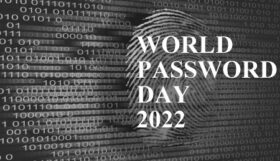Easy Ways to Protect Your Privacy
Teaching black people about the digital age is what this blog is all about. And black people need to understand what information collection is and stop surrendering so much of it. We ignore the incessant collection of personal information for the sake of convenience. In the end it doesn’t just demean us but all people. Information is the currency and the commodity of the digital age. The more you have the better off you will be. So whatever information you have left here is how to keep it and, in some cases, re-claim it.
First of all I could tell you to use a good password to protect your devices but that would be wrong. Use a good pass phrase. Most devices like your phone or tablet use just four characters to unlock it.That means its could take as little as 9,999 tries to unlock it. Don’t use your address or birthdate or any easy number to guess. Don’t use the pattern recognition thing either. My niece unlocked my phone on the first try just by looking for the greasy smear on the screen. It can be seen if you hold the devices at the right angle. Try using a picture choice instead. But use something.
Most black people don’t like you going behind their back to learn something about them. Its just not cool and very sneaky. So if you want to know who is looking you up then use Google Alert. This service allows you to keep track of when your name is searched online. Yeah, Google will sound the alarm if anyone searches your name. Go to http://www.google.com/alerts enter your name, and any variation of your name with quotation marks around it. But be prepared to get a lot of feedback because I’m sure you’re not the only person with your name in the county let alone the world. But if your name is unique then you got a chance. You can also do it for your children, your business or that new person you’re dating. This is especially helpful if you are job hunting. You will know if a potential employer is searching your name online.
Sign out of your online accounts when you are done. You know; the same online accounts that you are now using pass phrases instead of passwords; remember? That means email, social media, banking, shopping, everything! This will reduce the ability to track your web surfing. I hope you’re not using a public computer. If someone came along behind you they could get a look at your activity just by hitting the back button. Even if you’re using a friend’s computer sign out! Leave those accounts open and suffer the consequences. Did you know that the public library is a prime spot for identity theft?
Don’t share your email, phone number or zip code unless its ABSOLUTELY necessary! Why the hell do stores ask for your zip code or email address at the checkout counter? Because they are collecting information on you that’s why? African-American consumers should refuse handing over anything except cash at the checkout. Like I said, stores are building a profile of you and what you buy. Don’t be so helpful.
Use encryption on your computer. By encrypting your computer no one can access your files without a pass phrase. Let’s be real you could have malware on your computer that allows someone to access to it. It happens. If you have a Mac go to your settings, select “Security and Privacy,” then “FileVault,” click the “Turn on FileVault” option. You’re encrypted! For you PC owners use Bitlocker.
If you use Gmail then you want to use Two Step Authentication. This process turns your phone into a security assistant. If you want to access your Gmail account from a new or different device you will need a special code that arrives in your phone as a text message. So even if someone gets your password there is no way they’ll able to use it to sign into your Gmail account. Google claims millions of people use it and “thousands more enroll each day.” You’d be smart to be one of those people.
If you don’t want anyone to know what you’re buying pay cash. Yes, cash is king! Even in a digital economy it’s still accepted worldwide and no one can trace it back to you. So when it comes to the sensitive or embarrassing items just pay cash and no one will know and no embarrassing ads will show up at your home in your email.
Don’t be stupid on social media. Make sure your settings only allow your friends to see your posts. Don’t like anything. Trust me, they are doing fine without your help. Don’t friend the friend of a friend. Keep strangers out of your life until they prove they are worthy. Don’t use your picture or your children’s picture on the page. Ask your friends not to tag you in pictures. And be cautious about what you do post. I like to post things two weeks after they happened.
Clean up your browser history and those unwanted cookies at least monthly. You can set your browser so that it erases your history after every session. Simply to the go to the “privacy” setting in your browser’s options and set it to clear browser history and cookies when you close it. That’s how you cut down online tracking. You can also use the add on called TACO. This also helps to reduce online tracking. Anyone can look at a computer and check the browser history to see what websites you been to. Keep that in mind when someone is using your computer. Most websites use cookies to track you. Delete them frequently. They tell anyone who looks where you been as well. I am a big fan of keeping my computer clean and secure. See my post here.
Make use of an IP masker. Tor browser is an excellent way to hide your online movements. You can download Tor or use another browser add-on like HideMyAss.com. The objective is to prevent companies and other information collectors from following you around the web. Its really creepy to know that somebody somewhere has a lists of all the websites you visit and what you’re looking at. But, yes someone does.
Keeping your information yours is extremely important for black people. We have a problem because we don’t know how this information is used. And we know its sometimes used against us. Information collection has become a huge industry; an unregulated industry. So these companies are watching you and everything you do with impunity. Are you gonna play along?
Now you know.






